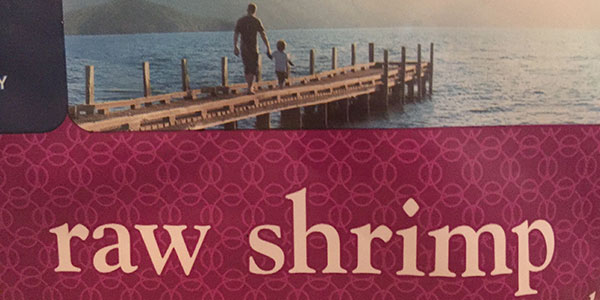Shrimp was once an expensive, “special occasion” food served at fancy shindigs and in high-end restaurants. It is now affordable, everyday fare. The advent of mass-scale shrimp farming, particularly in Asia, was a major game-changer.
Our appetite for shrimp is massive. It is the most popular seafood in the U.S.—served-up at drive-thru windows, featured in casual restaurants’ “all-you-can-eat” specials, and pre-packaged for quick dinners at home. We consume approximately 1.3 billion pounds a year, 90 percent of which is imported.
Unfortunately, we also have a big appetite for fast and easy. What’s better than cheap shrimp? Cheap, pre-peeled shrimp. With the unpleasant and time-consuming task of peeling out of the way, home cooking is simplified and commercial food operations are streamlined. But as the Associated Press recently discovered, the cost of this convenience is unimaginable.
In an extensive report on its undercover investigation, AP exposes the Gig Peeling Factory—one of many shrimp peeling operations in Thailand that run on slave labor. It is a horrifying read that outlines the conditions under which men, women and children work 16-hour days. Each adult “worker” peels approximately 175 pounds of shrimp a day.
As part of the investigation, AP followed the slave-peeled shrimp through a long and complex supply chain all the way to major food brands, grocery stores, retailers and restaurants in the U.S. Corporate representatives were dismayed to learn about the provenance of the shrimp and vowed to push for anti-trafficking measures and greater supply chain transparency moving forward. But it won’t be easy.
Thailand dominates the farmed shrimp market and nearly half of its supply is exported to the U.S. The country has an sordid history of using forced labor.
Fortunately, AP’s findings are already proving to be a critical catalyst for change. As Susan Coppedge, the U.S. State Department’s anti-trafficking ambassador, states in the report: “We have told Thailand to improve their anti-trafficking efforts, to increase their prosecutions, to provide services to victims.” She adds, “American consumers can speak through their wallets and tell companies: ‘We don’t want to buy things made with slavery.’”
Read the article and decide for yourself. Is imported, farmed, pre-peeled shrimp making your world a better place?

